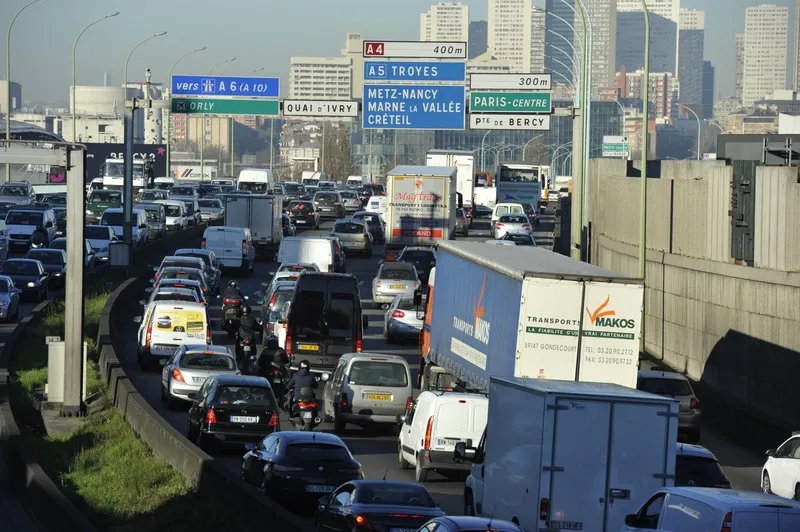Thousands of cars will be banned from Parisian roads today as the city tries to curb dangerous pollution levels by introducing alternate driving days for the first time in nearly two decades.
The radical move will see around 700 police officers deployed to man 60 checkpoints around the French capital to ensure that only cars with number plates ending in odd numbers are on the streets.
Parking will be free for vehicles with even number plates, the Paris city hall said, calling on residents to consult
March 17, 2014
Read time: 3 mins
Thousands of cars will be banned from Parisian roads today as the city tries to curb dangerous pollution levels by introducing alternate driving days for the first time in nearly two decades.
The radical move will see around 700 police officers deployed to man 60 checkpoints around the French capital to ensure that only cars with number plates ending in odd numbers are on the streets.
Parking will be free for vehicles with even number plates, the Paris city hall said, calling on residents to consult carpooling or car-sharing sites to work out their travel plans. The restrictions will come into force across Paris and 22 surrounding areas from 05:30.
They will be reviewed on a daily basis, with odd numbers potentially banned on Tuesday if an extension is deemed necessary.
Electric and hybrid cars will be exempted from the ban as well as any vehicle carrying three people or more. It is the first time since 1997 that the French authorities have resorted to such a drastic measure.
The government made the announcement on Saturday after pollution particulates in the air exceeded safe levels for five straight days in Paris and its environs. All public transport was made free over the weekend to persuade residents to leave their cars at home, and will remain free as long as the alternate driving days remain in force.
With less than a week to go before key municipal elections, the issue has become something of a political football. The opposition UMP candidate for Paris mayor, Nathalie Kosciusko-Morizet, called the measure a "fig leaf", while Ecology Minister Philippe Martin said he understood the "difficulties, the irritation and even anger" over the move, adding: "But we just had to take this decision."
Martin said similar measures in 1997 "had yielded results," adding that he hoped that the number of vehicles on the roads would be "significantly lower" on Monday, without giving a figure.
France's Automobile Club Association (ACA), which counts some 760 000 members, denounced the move as "hasty, ineffective" and "bound to lead to chaos". "This measure had no effect in any country where it was introduced," said ACA head Didier Bollecker.
By Saturday the number of pollution particulates in the air had fallen slightly after hitting a high of 180 microgrammes per cubic metre - well over double the safe limit - on Friday.
The smoggy conditions have been caused by a combination of cold nights and warm days, which have prevented pollution from dispersing. The pollution particulates in the air can cause asthma attacks as well as respiratory and heart problems. So-called PM10 particulates are created by vehicles, heating and heavy industry, with the safe limit set at 80 per cubic metre.
The radical move will see around 700 police officers deployed to man 60 checkpoints around the French capital to ensure that only cars with number plates ending in odd numbers are on the streets.
Parking will be free for vehicles with even number plates, the Paris city hall said, calling on residents to consult carpooling or car-sharing sites to work out their travel plans. The restrictions will come into force across Paris and 22 surrounding areas from 05:30.
They will be reviewed on a daily basis, with odd numbers potentially banned on Tuesday if an extension is deemed necessary.
Electric and hybrid cars will be exempted from the ban as well as any vehicle carrying three people or more. It is the first time since 1997 that the French authorities have resorted to such a drastic measure.
The government made the announcement on Saturday after pollution particulates in the air exceeded safe levels for five straight days in Paris and its environs. All public transport was made free over the weekend to persuade residents to leave their cars at home, and will remain free as long as the alternate driving days remain in force.
With less than a week to go before key municipal elections, the issue has become something of a political football. The opposition UMP candidate for Paris mayor, Nathalie Kosciusko-Morizet, called the measure a "fig leaf", while Ecology Minister Philippe Martin said he understood the "difficulties, the irritation and even anger" over the move, adding: "But we just had to take this decision."
Martin said similar measures in 1997 "had yielded results," adding that he hoped that the number of vehicles on the roads would be "significantly lower" on Monday, without giving a figure.
France's Automobile Club Association (ACA), which counts some 760 000 members, denounced the move as "hasty, ineffective" and "bound to lead to chaos". "This measure had no effect in any country where it was introduced," said ACA head Didier Bollecker.
By Saturday the number of pollution particulates in the air had fallen slightly after hitting a high of 180 microgrammes per cubic metre - well over double the safe limit - on Friday.
The smoggy conditions have been caused by a combination of cold nights and warm days, which have prevented pollution from dispersing. The pollution particulates in the air can cause asthma attacks as well as respiratory and heart problems. So-called PM10 particulates are created by vehicles, heating and heavy industry, with the safe limit set at 80 per cubic metre.







